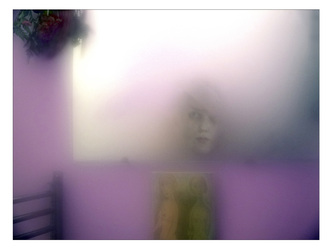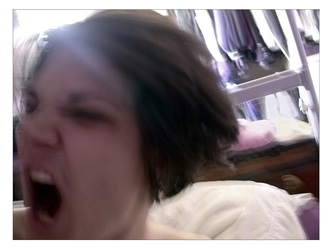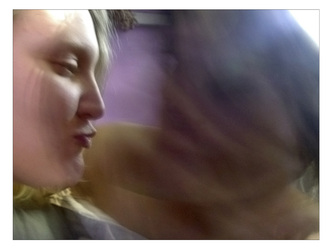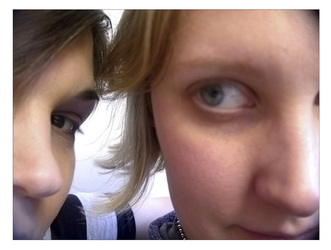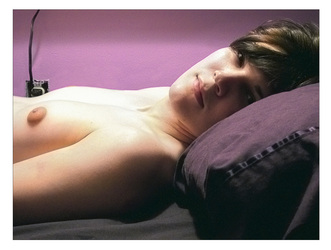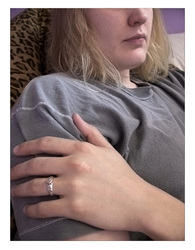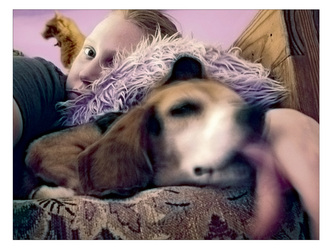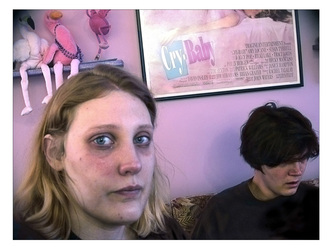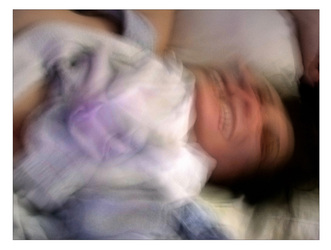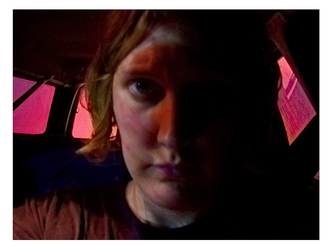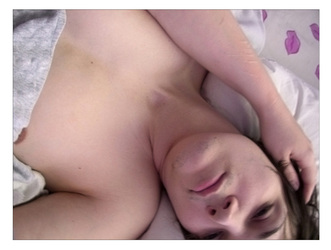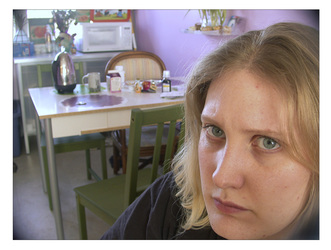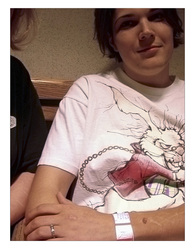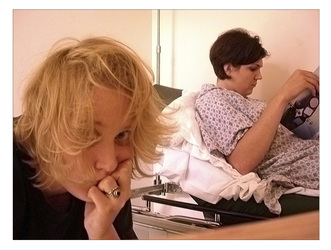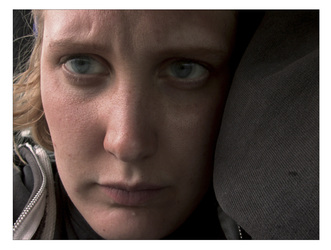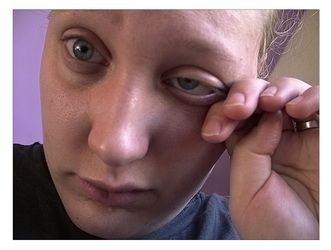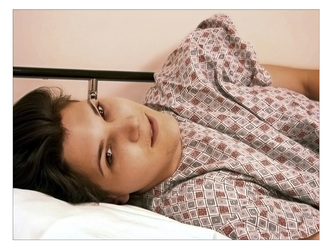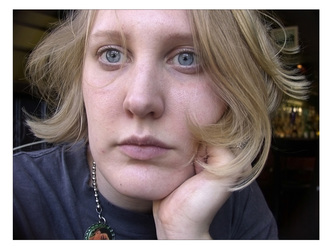| Christine J Shanks |
|
Artist Statement
The camera was my only witness. The camera was the measure of my sanity. The camera was my confessional. The camera revealed things that I wasn’t ready to see. The camera became a shield against brutal reality. The camera saw everything I couldn't, because the camera was looking at me.
After my partner and I married, he was diagnosed with rapid cycling bipolar disorder. He became a frightening stranger. As the person I knew disappeared, I felt abandoned. Caring for him required a strength that I never knew I possessed. I felt guilty for resenting the personal sacrifices necessary to care for him. But my feelings seemed insignificant to his. He could not see me through the illness that had taken over his mind.
To fill the void I picked up my camera and it became my constant companion. When I felt cheated, angry, alone, and overwhelmed with pain, it was there to comfort and validate me. It became more essential than the understanding of others. I couldn't show them what was happening, so I showed my camera instead. I kept it with me almost every moment. During arguments, times of solitude, or running errands, it was by my side... present... waiting... watching. There was nothing in our lives it didn't record — suicide attempts, over-sleeping, violence, resistance, the hope for a cure in doctor's waiting rooms, institutionalization, resentment, pain, mess, neglect, endless chores and errands, stress and exhaustion.
Every week as I loaded the numerous files onto my computer I watched as my own tragic reality show unfolded. I felt I was revealing too much, but I couldn't stop. In this battle the camera was on my side, separating me from reality. It hung from my neck giving purpose to my mundane and tumultuous life. If I didn’t keep recording, I feared I might lose my own grip on sanity. I never knew which of my partner’s moods would greet me each morning or what would happen next. But I knew my camera would be there with me, providing proof of my existence. It was the only constant aside from the pain.
The digital process, unlike film based processes, enabled me to combine my art and my life into one flowing entity. I could be home protecting my spouse and still pursue art. The digital fixed lens camera - light, compact, instantaneous, non-intrusive - enabled me to create this series. Even in the midst of his illness, my spouse remained an inspiration.
After my partner and I married, he was diagnosed with rapid cycling bipolar disorder. He became a frightening stranger. As the person I knew disappeared, I felt abandoned. Caring for him required a strength that I never knew I possessed. I felt guilty for resenting the personal sacrifices necessary to care for him. But my feelings seemed insignificant to his. He could not see me through the illness that had taken over his mind.
To fill the void I picked up my camera and it became my constant companion. When I felt cheated, angry, alone, and overwhelmed with pain, it was there to comfort and validate me. It became more essential than the understanding of others. I couldn't show them what was happening, so I showed my camera instead. I kept it with me almost every moment. During arguments, times of solitude, or running errands, it was by my side... present... waiting... watching. There was nothing in our lives it didn't record — suicide attempts, over-sleeping, violence, resistance, the hope for a cure in doctor's waiting rooms, institutionalization, resentment, pain, mess, neglect, endless chores and errands, stress and exhaustion.
Every week as I loaded the numerous files onto my computer I watched as my own tragic reality show unfolded. I felt I was revealing too much, but I couldn't stop. In this battle the camera was on my side, separating me from reality. It hung from my neck giving purpose to my mundane and tumultuous life. If I didn’t keep recording, I feared I might lose my own grip on sanity. I never knew which of my partner’s moods would greet me each morning or what would happen next. But I knew my camera would be there with me, providing proof of my existence. It was the only constant aside from the pain.
The digital process, unlike film based processes, enabled me to combine my art and my life into one flowing entity. I could be home protecting my spouse and still pursue art. The digital fixed lens camera - light, compact, instantaneous, non-intrusive - enabled me to create this series. Even in the midst of his illness, my spouse remained an inspiration.
